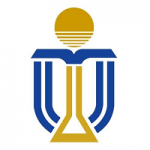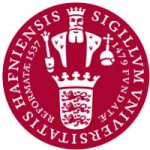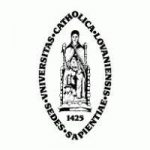项目介绍
The Doctor of Philosophy (PhD) Program aims to develop the skills needed to identify research issues related to a practical application, to formulate an original research plan that addresses some of those issues, and to independently create a computing-related solution. A candidate for a PhD degree is expected to demonstrate mastery of knowledge in the chosen discipline and to synthesize and create new knowledge, making an original and substantial contribution to the discipline.
On successful completion of the PhD program, graduates will be able to:
- Demonstrate a systematic understanding of the field of computer science, and wide knowledge across the three major areas including systems, applications and theory;
- Make a contribution to their specific field of study through original research that extends the frontier of knowledge by developing a substantial body of work;
- Communicate effectively and professionally both in writing and oral presentations using appropriate technical languages, publish research outcomes in peer-reviewed venues, and interpret their research outcome both to a specialist and a general audience clearly;
- Set their own research agenda for the future, and to undertake a future career as an independent researcher in academia and industry;
- Follow the principles of ethics in their field and in academia; and
- Demonstrate a mastery of skills and knowledge at a level required for college and university undergraduate teaching in computer science and assessment of student learning.
The programs are offered by the Department of Computer Science and Engineering with the following research foci and state-of-the-art facilities, training students with the skillsets to make the useful applications in modern life.
Research Foci
Artificial Intelligence
Machine learning, data mining and pattern recognition, knowledge representation and reasoning, robotics and sensor-based activity recognition, multi-agent and game theory, and speech and language processing.
Cybersecurity
Security, privacy, and cryptography.
Data, Knowledge and Information Management
Large-scale data management, modeling and distribution encompassing web query processing, information retrieval and web search, data mining, enterprise systems, high-performance data management systems on modern computers, and database support for science applications.
Human-Computer Interaction
Augmented reality, multi-touch interaction, crowdsourcing, multimodal communication, affective computer, visual analytics of big data, intelligent interface for robots, e-learning, healthcare and e-commerce.
Networking and Computer Systems
Pervasive computing and sensor networks, peer-to-peer computing, grid computing, high-performance switches and routers, video delivery and multicasting, multimedia networking, MAC protocols for ad-hoc networks, web cache management, DDOS detection and defense, and resource management and allocation in optical networks.
Software Technology and Applications
Software engineering, data mining for software analysis and debugging, computer music, cryptography and security, internet computing.
Theoretical Computer Science
Design and analysis of algorithms, data structures, computational geometry, inform ory, cryptography, and database theory.
Vision and Graphics
Computer vision, computer graphics, medical image analysis, biometric systems, and video processing.
Facilities
The Department has excellent facilities to support its programs and is committed to keeping its computing facilities up to date. There are about 700 workstations and PCs, including those in four teaching laboratories, three MS Windows Labs and one Linux lab. The Department also runs several research laboratories with specific facilities, including the computer engineering, database, Human-Computer Interaction Initiative, vision and graphics labs. Specialized project laboratories include:
- The HCI lab, has a 120” rear projected 3D active stereo system, large-sized multi-touch panels, linked with various physiological sensors for gesture/ body tracking, and programmable interactive robots;
- The Human Language Technology Center, with various corpora and a Linux cluster;
- The System and Media Laboratory, partially funded by Deutsche Telekom, focusing mobile computing and any interesting topics related to social network, virtual reality and augmented reality; and
- The Networking group that maintains different sets of network cluster interconnected with high speed optical connections for Data center and cloud computing research; and
- Different research groups maintain their own CPU/ GPU cluster customized for different research need.
In addition, the Department manages a pool of Linux servers as CPU/ GPU cluster for general research projects demanding significant system resources, and acquires a GPU cluster for the whole University. The file servers are connected with one HDS VPS G200 and one HDS HUS110 Storage Area Network (SAN) system, with a total capacity of more than 150TB. There is also a pool of high performance servers with GPUs and interconnected with 10GbE switches dedicated for undergraduate courses on parallel computing, Big Data analysis and cloud computing. We also have a private cloud infrastructure for teaching and projects.
To qualify for admission, applicants must meet all of the following requirements. Admission is selective and meeting these minimum requirements does not guarantee admission.1. General Admission Requirements of the University
- Applicants seeking admission to a master’s degree program should have obtained a bachelor’s degree from a recognized institution, or an approved equivalent qualification;
- Applicants seeking admission to a doctoral degree program should have obtained a bachelor’s degree with a proven record of outstanding performance from a recognized institution; or presented evidence of satisfactory work at the postgraduate level on a full-time basis for at least one year, or on a part-time basis for at least two years.
2. English Language Admission Requirements
Applicants have to fulfill English Language requirements with one of the following proficiency attainments:
- TOEFL-iBT: 80*
- TOEFL-pBT: 550
- TOEFL-Revised paper-delivered test: 60 (total scores for Reading, Listening and Writing sections)
- IELTS (Academic Module): Overall score: 6.5 and All sub-score: 5.5
* refers to the total score in one single attempt
Applicants are not required to present TOEFL or IELTS score if
- their first language is English, or
- they obtained the bachelor’s degree (or equivalent) from an institution where the medium of instruction was English.
联系方式
电话: +852 2358 8888相关项目推荐
KD博士实时收录全球顶尖院校的博士项目,总有一个项目等着你!






